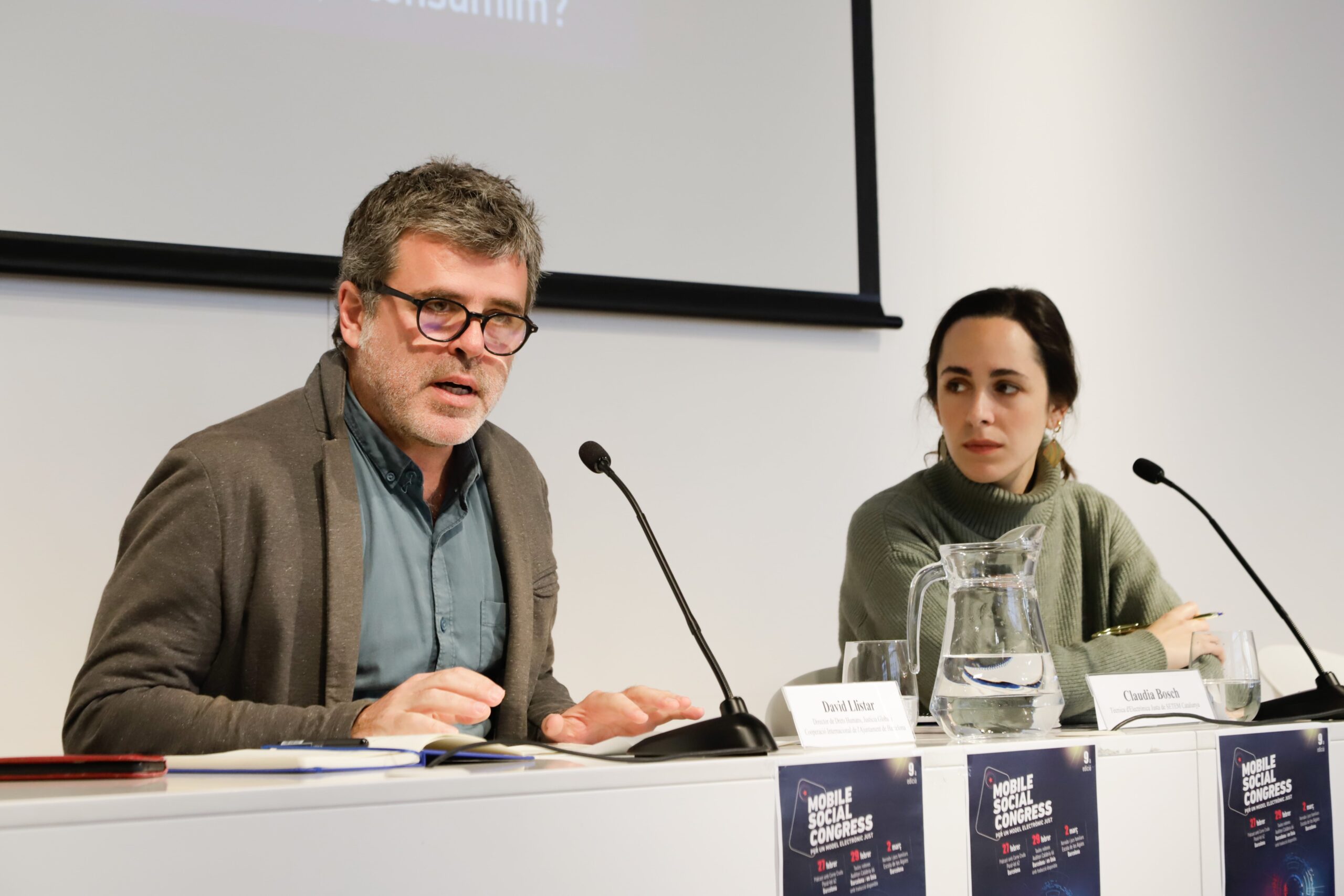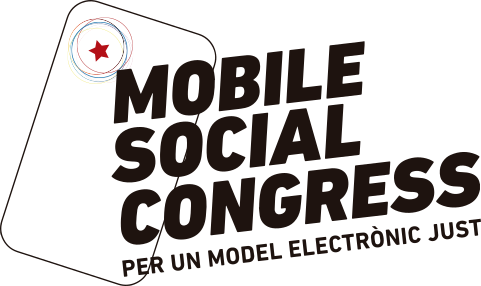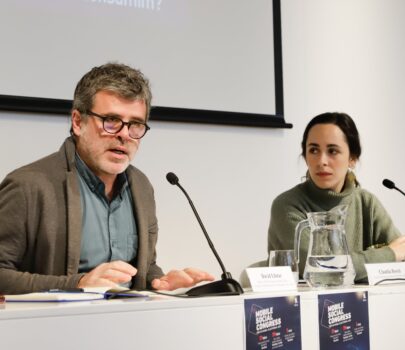
- The MSC, which will take place from February 26 to March 2, will start with a ‘performance’ at the gates of the MWC. Throughout the week, it will feature panel discussions, talks, family games and a live podcast
- The ninth edition of the congress will bring together experts from all over the world to address the effects of the electronics industry, especially social and environmental costs arising from the production of phones and tablets
- On Saturday, the MSC will conclude with a talk on regulating screentime from childhood to adulthood, alongside family games
The Mobile Social Congress (MSC), coinciding with the Mobile World Congress (MWC) in Barcelona, will highlight the true costs of the technology we consume, particularly focussing on the social and environmental costs stemming from electronics production and increasing digitalisation. The MSC will begin on February 26 at the gates of the Fira de Barcelona with an artivism action aimed at raising awareness about the effects of the technology industry not addressed within the framework of the MWC.
The ninth edition of the MSC was presented to the press on Tuesday morning in Barcelona. Claudia Bosch, staff member of the Fair Electronics Campaign from SETEM Catalunya, the organisation hosting the event, and David Llistar, Director of Global Justice and International Cooperation at Barcelona City Council, presented the MSC 2024 program. They outlined the reasons why the MSC should continue to be held alongside the MWC, emphasizing its role in providing to the public a space for discussing the true costs of digitalisation and electronics’ growing impact.
All the links in the supply chain will be analysed, from the extraction of minerals and raw materials necessary for the production of electronics to the utilization of devices and finally the point when these, become waste after just a short time. The effects of digitalisation on the mental health of the users will also be discussed.
The first action, which is not part of the official program, is a ‘performance’ at the gates of the MWC, on Monday 26 February, at 9 in the morning. Under the motto “The mine at home”, the performance will emphasize the impact of primary material extraction, which is typically outsourced to countries of the global South, is affecting more and more countries.
On Tuesday 27 February one of this year’s new additions to the program will take place: a live broadcast of an episode of the ‘Carne Cruda’ podcast in Paral·lel 62. The episode will feature experts on the various impacts within the supply chain and the consumption of digital technology, along with a musical performance by the Catalan punk group La Élite.
On Thursday, February 29, the main debate will be held in the Calabria 66 auditorium. In line with the overarching themes of the program, the discussion will touch on the effects of raw material extraction, such as lithium in Argentina or cobalt in the Congo, on labour exploitation in factories, such as those in China, and on digital justice. This last panel discussion will also showcase different alternatives for fairer technology.
Already on Saturday 2 March, various activities for the whole family will take place at the Escola de les Aigües. However, the day is not without debate – specifically, the regulation of mobile phones will be discussed and guides on the use of electronic devices among children and adolescents, as well as on ‘digital fasting’ will be presented.
The MSC is a space open to the public, which offers a critical look at the current production model, on consumption of electronic devices and on information and communication technologies. It also offers an opportunity to learn about alternative models and projects based on technological sovereignty, sustainability and respect for human rights.
A congress aimed at “continuing to create a critical public pushing for change”
As Claudia Bosch explained at the MSC 2024 presentation, after nine editions, the goal is to continue creating “critical public so that they push for change”. Change which, as a consequence of growing digitalisation post-covid, is in some cases facing a risk of setbacks. Currently there are laws being debated both in the Catalan Parliament and at the European level – a result of year-long social pressure to minimize the social and environmental impacts of global supply chains, impacts which are externalised costs to countries of the global South. “Too often we are presented with the production of technology as an abstract reality, and that is not the truth, since it does have material and human impacts, which affect women in an even stronger way”.
For his part, David Llistar has highlighted the role of Western administrations in responsible public spending when acquiring electronic devices. He mentioned the recent visit of a delegation from Barcelona to the Philippines to get to know the ‘in situ’ reality of electronics production in Asian countries, precisely in a region where a large part of the ten thousand Barcelona residents who were born in the Philippines originate from. For this reason, he is aware that in a city like Barcelona, where large congresses such as the MWC take place, it is just as important to widen the gaze towards the impacts of the processes of digitalisation. In this sense, “the MSC represents a call for attention towards the B-side of electronics”, as well as a reflection on “how to move towards fairer global supply chains”.
An alternative space to the Mobile World Congress
The Mobile Social Congress was born as an alternative space to the Mobile World Congress, denouncing the injustices inherent in a global production and consumption model based on extractivism and the externalisation of social and environmental impacts to the Global South. It also showcases those projects and initiatives which propose new ways of producing and consuming electronic devices, respecting the rights of people and the environment, while making responsible use of resources. In addition, it outlines alternatives to the future scenarios that arise in the face of growing digitalisation, addressing the spheres of labour and economy as well as leisure or everyday life.
Pictures of the presentation of MSC on Tuesday morning can be found here.
More information and interview management:
Sara Blázquez | 679 86 45 18 | sara@diesdagost.cat
Josep Comajoan | 699 18 05 46 | josep@diesdagost.cat


